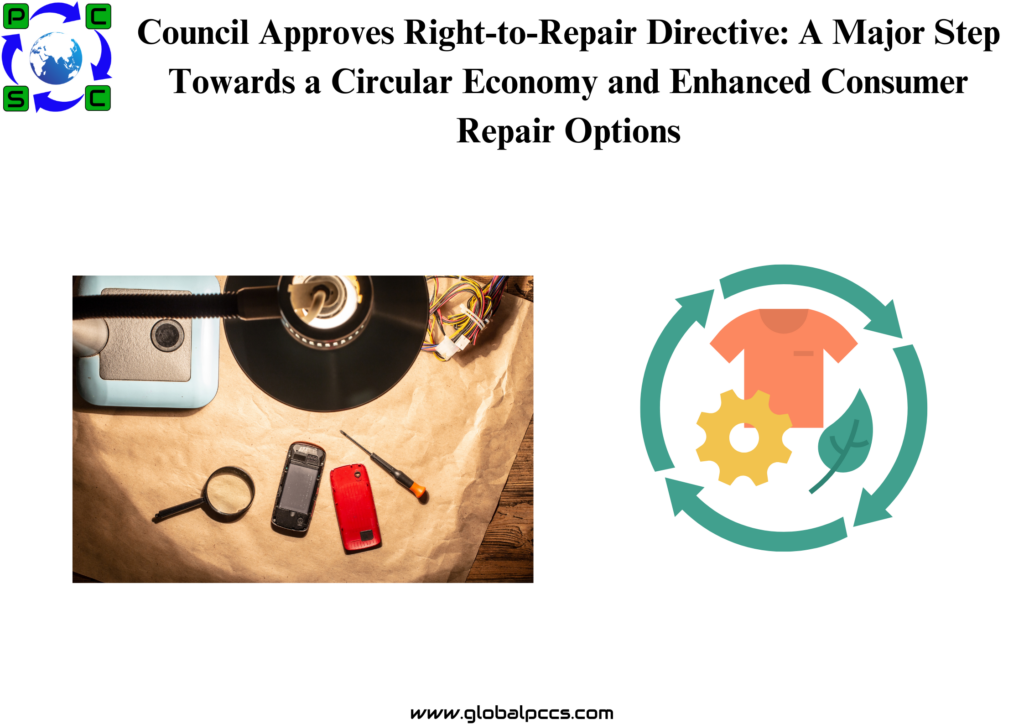 A directive known as the right-to-repair (or R2R) directive was enacted by the Council to encourage the repair of damaged or faulty items. Customers seeking repair rather than replacement will find it simpler thanks to this law, which will also improve the accessibility, transparency, and appeal of repair services. The legislative decision-making process ends with the adoption of the directive.
A directive known as the right-to-repair (or R2R) directive was enacted by the Council to encourage the repair of damaged or faulty items. Customers seeking repair rather than replacement will find it simpler thanks to this law, which will also improve the accessibility, transparency, and appeal of repair services. The legislative decision-making process ends with the adoption of the directive.
Repair made easier
The enacted directive establishes a range of instruments and inducements aimed at increasing consumer appeal for repair. The availability of a voluntary repair form with clear information about the repair process (deadlines, prices, etc.); a European online platform where consumers can easily find repair services; and the extension of the legal guarantee with 12 months if consumers choose repair instead of replacement are a few of these. Manufacturers are also required to repair products that are technically repairable under EU law.
Future additions to the list of repairable items will be made to the R2R directive if the Commission establishes additional standards for particular products’ reparability.
The legislation has been enacted after being approved by the Council. Following signatures by the heads of the European Parliament and the Council, the directive will be published in the EU Official Journal and go into effect on the twentieth day after it is published. Within 24 months of the directive’s enactment, member states will need to incorporate it into their domestic legislation.
Part of the New Consumer Agenda and the Circular Economy Action Plan, this recommendation was made by the Commission on March 22, 2023. It is an addition to other recent EU laws that support sustainable consumption, like the directive on empowering consumers for the green transition and the ecodesign for sustainable products regulation, which encourage the manufacture of repairable products and provide consumers more information at the point of sale.








 Authorised IMDS & CDX Training & Consulting partner for
Authorised IMDS & CDX Training & Consulting partner for






